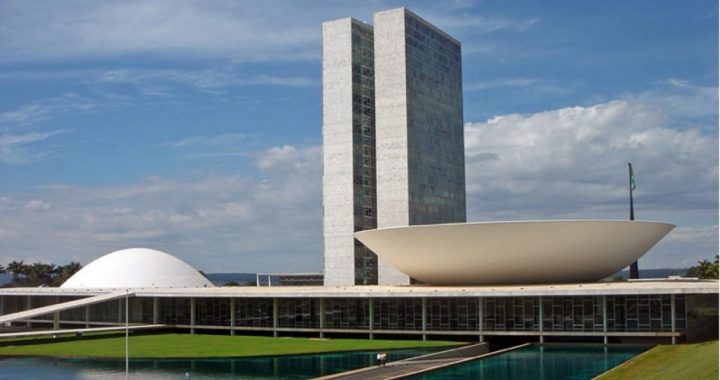
Following a marathon 20-hour session that ended early Thursday morning, Brazil’s Senate voted 55-22 to try President Dilma Rousseff on charges that she manipulated the government’s books to make its debts appear more manageable and to help her get reelected in 2014.
Some are calling the vote a temper tantrum, reflecting the deep anger and frustration by Brazilians, expressed by recent riots that were suppressed with excessive force by the government. The economy is in the worst economic shape since the 1930s, with little hope for improvement. The Petrobras oil scandal, dubbed Operation Carwash, continues to expose layer after layer of corruption, reaching all the way to the top of Rousseff’s administration, including her vice president, Michel Temer.
Temer finds himself in a unique position. He was just fined for violating campaign contribution limits, which bars him from running for office, but shortly he will nevertheless be running the country. His approval numbers are barely discernible at two percent, far below those of Rousseff’s 10 percent. There’s a motion being presented to try him for corruption as well.
The house speaker has been forced to step down, thanks to the Operation Carwash scandal, and almost 60 percent of the Senate is under investigation in that same scandal.
Rousseff, an inefficient bureaucrat with a history of terrorism, has pushed back against all charges from the beginning, claiming that efforts to remove her from office are tantamount to a coup. She vowed to appeal any such attempt to the highest court in the land, which she and her predecessor, former President Lula da Silva, packed with friendlies.
But on Thursday those handpicked justices declined to consider her appeal.
Even her friend at Brazil’s central bank, former president Gustavo Loyola, admitted that impeachment, if the Senate votes for it, “is better than if she had continued to the end. I don’t think Brazil has ever had a worse president.”
Temer might just be a close second. Several of his close cronies are under investigation in the Petrobras scandal, but Temer has insisted that that wouldn’t keep him from appointing them as advisors in his new Cabinet.
Temer finds himself a wolf guarding the henhouse. Deeply enmeshed in the Petrobras scandal, he is faced with trying to excise that corruption from the body politic, regain cooperation from the various dissenting political parties (most of which are also heavily involved in the scandal), and help Brazil recover economically from its deepening malaise.
Rousseff, in early 2015, attempted to do something about the declining economy by appointing a central banker to make suggestions. When his suggestions included cutting spending by reducing welfare programs such as free electricity, the pushback from dependent citizens and her socialist supporters was so great that she fired him later that year.
The real reason for the Senate’s vote to proceed with the trial of Rousseff was expressed perfectly by Reed Johnson, who wrote in the Wall Street Journal:
To her critics and allies alike … the descent of Brazil’s president was less about alleged accounting sleight-of-hand and far more about a comatose economy, a colossal political scandal, partisan payback from her congressional adversaries, and an electorate that feels betrayed by the president and disgusted with Brazil’s ruling elites.
The parallels to the current political and economic environment in the United States are not only obvious but unnerving. The leading Democratic candidate for the U.S. presidency is being criminally investigated by the FBI for opening her e-mail server to foreign government hackers, despite her protestations that it isn’t an investigation but merely a “security review.” James Comer, head of the FBI, however, said he had never heard the words “security review,” that he didn’t know what they meant, and that what his agency was doing was completing a criminal investigation, with the result that Hillary Clinton might be put into the same position as Temer: a convicted criminal running the country.
In addition, Clinton continues to lose support from the very people whose votes she needs in the upcoming election, while her likely opponent continues to gain ground on her in the polls.
It’s useful to remember that in the United States only two presidents have ever been impeached — Andrew Johnson in 1868 and Bill Clinton in 1998 — but the rules didn’t require either of them to step aside during their trials, and both were eventually acquitted.
Photo of Brazil’s National Congress
A graduate of an Ivy League school and a former investment advisor, Bob is a regular contributor to The New American magazine and blogs frequently at LightFromTheRight.com, primarily on economics and politics. He can be reached at [email protected].
Related articles:
Brazil in Turmoil: President’s Impeachment Vote Imminent
Amid Impeachment, Marxist Brazilian President Cries “Coup” at UN



